Fall of North Darfur capital El Fasher – impact on the youth
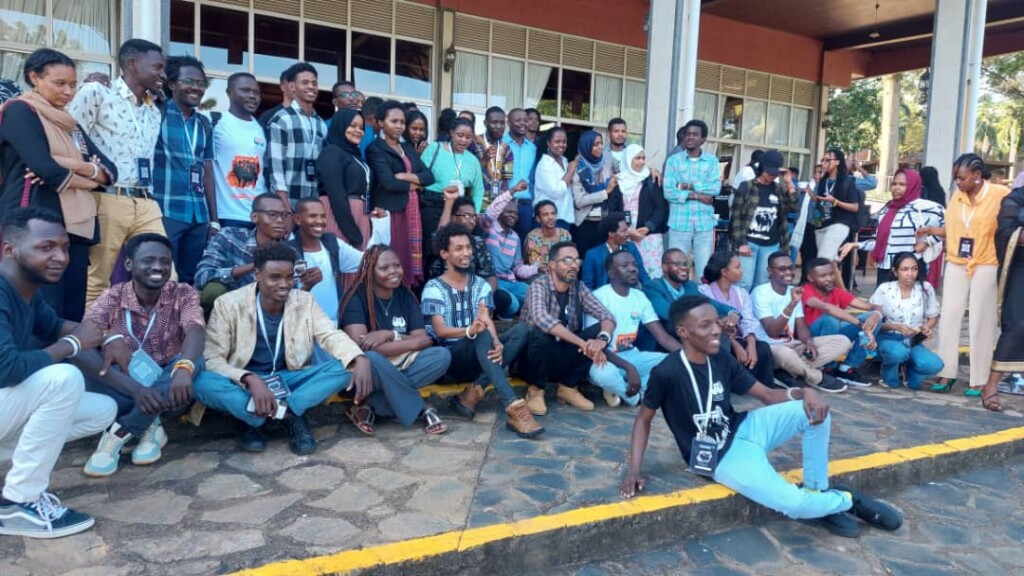
Sudan Youth Network founding conference participants in Entebbe, Uganda (Photo: RD)
Report by Amin Ramadan for Radio Dabanga
A leading Sudanese human rights activist has highlighted the atrocities and horrific violations of human rights and international humanitarian law committed against civilians in El Fasher following its takeover by the Rapid Support Forces. He further emphasised the serious social, economic, future, and psychological repercussions for young people, the most affected group.
Dr Dawaa El Hussein, a resident of El Fasher, stated that Sudan is experiencing one of its darkest historical moments. Young men and women in Sudan are living under the weight of a war that has exhausted their bodies and souls, depriving them of their most basic rights to education, security, and a dignified life. She added that what is happening today threatens not only their present but also the future of Sudan as a whole. She pointed out that while the world is moving towards investing in young minds, building research and innovation centers, and empowering new generations with science and knowledge to become a force for the future, Sudanese youth are living a completely different reality – a reality of deprivation and fear, where their dreams are limited to mere survival.
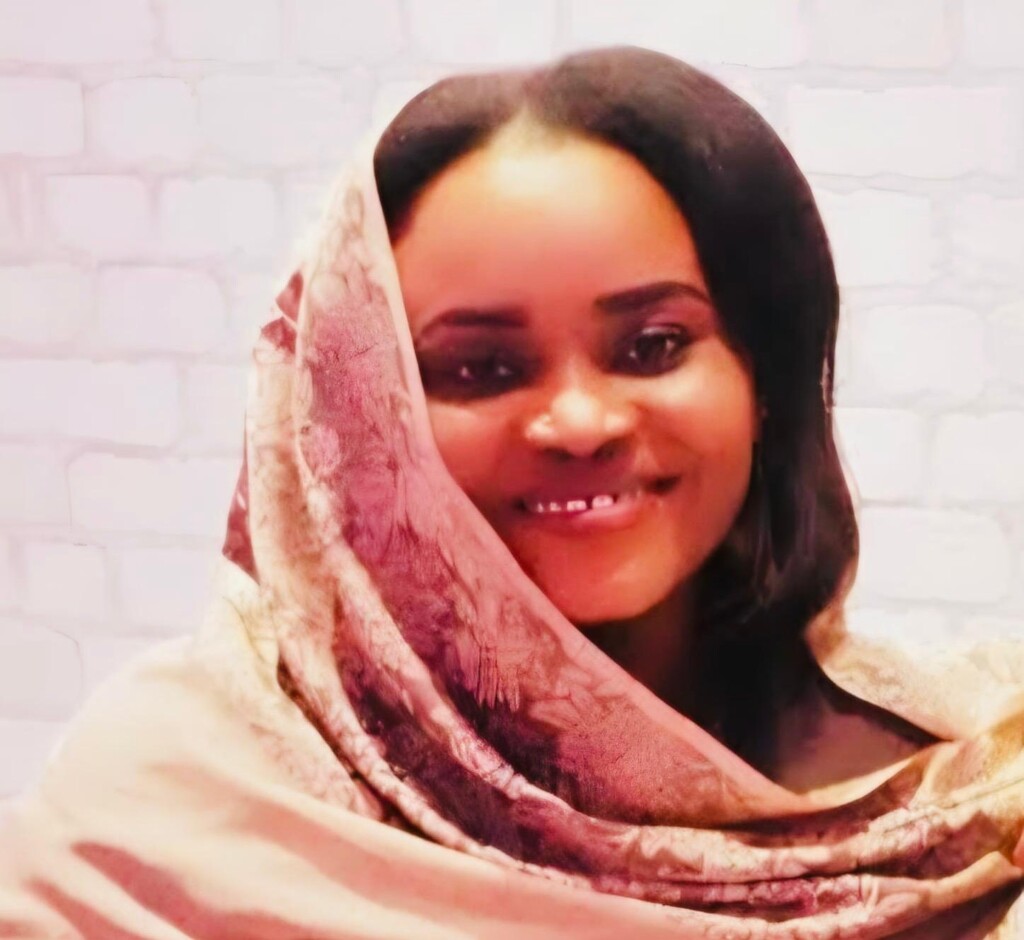
Polarisation and forced recruitment
In an interview with the Youth Issues program on Radio Dabanga, El Hussein explained that many young Sudanese today are vulnerable to forced recruitment and indoctrination in mobilisation camps, and are being pushed to sacrifice their lives for causes that serve neither their future, nor the future of Sudan, nor humanity as a whole. They are being killed before they have a chance at life, and deprived of education before they have even tasted the sweetness of knowledge.
El Hussein appealed to all relevant parties, whether through decision-making, weapons, or influence, to stop this bloodshed, saying, “It is time for the voice of peace to prevail over the voice of weapons, and for young people to be given a new opportunity for life, learning, and building.” She added that three years of suffering since the outbreak of war on April 15th have been enough to destroy cities, displace families, and shatter the dreams of an entire generation. She emphasised that hope remains if we choose peace as our path, responsibility as our approach, and national will as our compass. She concluded, “Let us end this tragedy, and let us begin together the journey to save Sudan – for the sake of its youth, its children, and all its people who deserve to live.”
Serious violations were observed in El Fasher:
For her part, Hanaa El Tijani, a member of the Youth Network for Civil Monitoring, expressed her deep concern and strong condemnation of the horrific violations witnessed in the city of El Fasher after the Rapid Support Forces announced their complete control over the city in October, following a siege that lasted nearly two years.
Hanaa said in an interview with the Youth Issues program on Radio Dabanga that the Rapid Support Forces’ takeover was followed by “an unprecedented explosion of violence and grave violations against civilians,” noting that the network’s monitors on the ground documented “mass killings of hundreds of civilians, in addition to the execution of dozens of patients and medical staff inside the Saudi Hospital, which was the last functioning health facility in the city.”
She added that the Rapid Support Forces “targeted doctors and health workers inside hospitals, and carried out widespread raids on homes and mosques, in addition to documented cases of gang rape,” stressing that these actions constitute “a systematic pattern of mass killing and ethnic cleansing against non-Arab communities in the city.”
Hanaa noted that satellite images analyzed by Yale University’s Humanities Research Laboratory “showed clusters of human bodies and dark spots, likely blood, around the children’s hospital and the Saudi hospital,” confirming that recent large-scale executions had taken place.

International Criminal Court
Hanaa El Tijani confirmed in an interview with Dabanga that these crimes constitute a flagrant violation of international humanitarian law, including the 1949 Geneva Conventions and the 1977 Additional Protocol. She added that they also fall under the category of serious international crimes as defined in Article 8 of the Rome Statute, which warrants prosecution before the International Criminal Court or specialised war crimes tribunals. She stressed the “urgent need for an international investigation and for ensuring that all those responsible for the violations in El Fasher are held accountable, considering what happened to be one of the worst humanitarian disasters to befall civilians since the outbreak of the April 15th war.” She further emphasised that the network will continue to document the crimes and support efforts for justice, “so that the perpetrators do not escape punishment and so that the victims obtain their right to redress, dignity, and justice.”
Young people are the most affected
Regarding the impact of the events in El Fasher on the city’s youth, Hanaa expressed deep concern about the unprecedented deterioration affecting young people in El Fasher, both during the prolonged siege imposed by the Rapid Support Forces and after their direct takeover of the city in October, which resulted in a catastrophic decline in all aspects of life. Hanaa Saleh stated, “Young people in El Fasher were the first and most affected by the comprehensive siege, which prevented access to food, water, and medicine, halted education and healthcare services, and forced thousands of young men and women to live in a constant state of fear and anxiety, unable to engage in any normal activity.”
gang rape as a weapon
She explained that the situation worsened after the Rapid Support Forces took control of the city, transforming it from a humanitarian siege into a widespread wave of violence amounting to genocide. She added that young men and women were subjected to horrific scenes, including mass killings, the destruction of homes, the loss of family members, and widespread assaults, including sexual violence and gang rape, which were used as a systematic weapon of war.
Hanaa emphasised that the psychological trauma inflicted on the youth is deep and long-lasting, and that many continue to suffer severe psychological effects as a result of constant fear and a complete lack of security. She noted that life in the city came to a complete standstill, with schools closed, markets disrupted, hospitals ceasing operations, and all economic, cultural, and social activities vanishing. She added that a large portion of the city’s youth were forced to flee within Sudan or abroad, and that the camps they sought refuge in lack even the most basic humanitarian services, exacerbating their suffering and impacting their stability and future.
Social effects of war
Hanaa El Tijani explained that the long-term social impacts are “extremely serious,” as civic participation and youth activism have disappeared, and access to education and employment has been disrupted, creating a significant void in the lives of an entire generation of young people and affecting social cohesion and opportunities for community recovery. Hanaa Saleh concluded her statement by emphasising the importance of on-the-ground monitoring and documentation of what is happening in El Fasher, not only to record violations, but also to “understand the scale of the humanitarian catastrophe, ensure future legal accountability, protect any hope for a return to normalcy, and safeguard the future of the youth who represent the backbone of society.”

Young people caught between the flames of war and drowning in the depths of the sea:
For her part, Nihal Ahmed, 24, expressed her deep sorrow over what is happening in El Fasher. She told Radio Dabanga that she feels completely helpless, as if all avenues to aid are firmly closed. While innocent people – children, women, and the elderly who have no part in this war – are being killed, the human conscience remains absent, and the world maintains a terrifying silence.
In an interview with Radio Dabanga’s Youth Issues program, she explained that what is happening in El Fasher is not merely a battle or a clash between two armed groups, but rather a full-fledged genocide and ethnic cleansing. She added, “People are being killed simply because they belong to a certain identity or because they were in the wrong place. Neighborhoods are being wiped off the face of the earth, hospitals are being bombed, and homes are being looted and burned.”
She pointed out that despite all attempts to devise initiatives to deliver aid, the roads to these victims seem blocked, either due to danger or due to complicity and silence. She asked, “Darfur is bleeding, El Fasher is crying out, and the world is turning a blind eye.” How long will this go on? Where is human conscience? Nihal stressed that what is happening today requires a courageous national stand and a unified national position that transcends political and tribal differences, in order to reach the people and save what can be saved of innocent lives being lost.
A lost generation caught between war and despair:
In her statement to Radio Dabanga, Nihal Hamid continued, saying that the ongoing war in Sudan has shattered the dreams of an entire generation of young men and women, a generation that can rightly be described as the “lost generation.” Millions have been deprived of the most basic necessities for a dignified life, including opportunities for education and employment, and have been subjected to immense psychological pressure that has left deep wounds. Nihal explained that education in Sudan has become a luxury that only a few can afford. Universities have become prohibitively expensive, and families struggle to secure their daily needs for food and shelter, making their children’s education the last thing on their minds. She pointed out that even those who manage to complete their studies find themselves unable to pursue their desired fields of study due to poor grades or a lack of financial support.
A search for safety in a burning homeland:
Nihal pointed to the experiences of young people who tried to escape the cycle of fear and poverty in search of “safety,” only to find themselves back at the heart of the tragedy. The war has engulfed everything, turning even cities that were once relatively safe havens into scenes of destruction and displacement. In the same vein, Nihal noted that the effects of war extend beyond the material realm, reaching the psyche and mind. Many young people today live in a state of constant anxiety, frustration, and hopelessness. Families themselves are burdened by psychological pressure as they try to cope with a reality that worsens daily.
She emphasised that this is not merely about a generation that has lost its opportunity for education or work, but about the future of an entire nation threatened with collapse unless urgent action is taken to stop the war and restore life and dignity to this generation, which today stands on the brink of collapse.
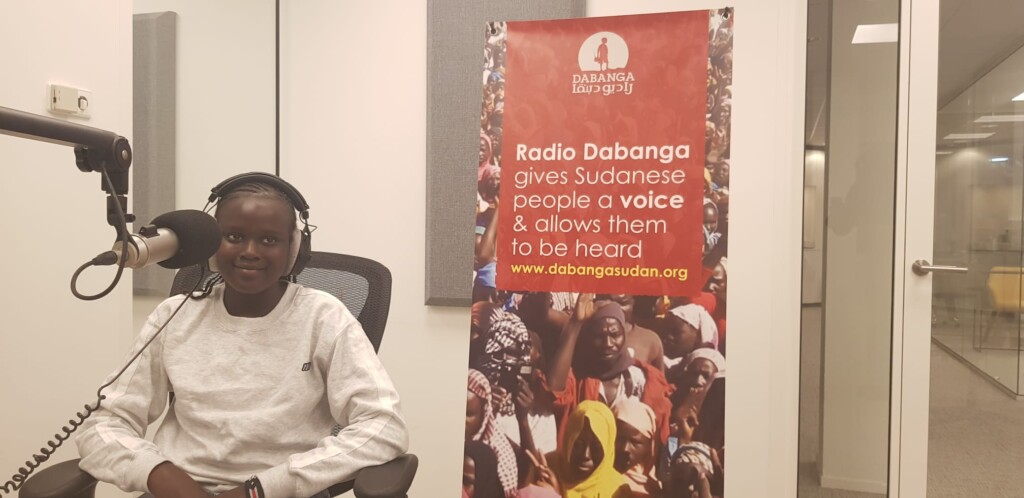
Stop the killing immediately, you are brothers
For her part, Amanda, a 15-year-old Sudanese-Dutch social media activist, condemned the violations committed against civilians in El Fasher, particularly women and children.
In an interview with the “Youth Issues” program on Radio Dabanga, Amanda stated that her TikTok account, where she addresses children’s issues in both North and South Sudan, has 45,000 followers.
She said she had been following the events in El Fasher, including the killing of women and children, and had even dedicated programs to discussing the situation there. She asserted that the Rapid Support Forces (RSF) killed hundreds of civilians in El Fasher, including children and women, pointing to videos posted by RSF members celebrating their actions.
She explained that children in the Netherlands have everything: they attend school and receive all basic services such as education and healthcare. In contrast, children in Sudan suffer from a lack of basic services; they do not attend school, struggle to access healthcare (where malaria is prevalent), and face food shortages.
The issue of El Fasher is neglected
Amanda said that the issue of El Fasher is of interest to some Sudanese, including young people, while others do not pay attention to it. She added that most of the Dutch people are not interested in what is happening there, but are interested in the issues of their own country. She called on them to follow the news about Sudan and El Fasher in particular, and to monitor the violations and share them with the relevant authorities to help bring the perpetrators of the crimes to justice.
Messages to the relevant authorities:
Amanda called on both sides in the war, the Sudanese Armed Forces and the Rapid Support Forces, to immediately cease hostilities. Speaking to Radio Dabanga, she added, “Stop killing innocent children, women, and all civilians. So many victims have fallen. We are all brothers and sisters, so there is no need for this fighting. Stop the killing immediately.” She also called on the international community to stop the fighting and exert more pressure on the parties involved. She further urged the international community to provide essential humanitarian aid to those in need, such as food, medicine, and blankets. She called on the International Criminal Court to fulfill its role and bring the perpetrators of the crimes in El Fasher to justice. In the same vein, she called on Sudanese civil society organisations abroad to stand with those affected in Sudan and South Sudan by sending them essential aid, such as medicine and other supplies. Amanda expressed her deep solidarity with the victims of the war in El Fasher and appealed to families to remain united, expressing her hope that the war would end as soon as possible throughout the country and that peace and stability would prevail, allowing them to return to their homes.
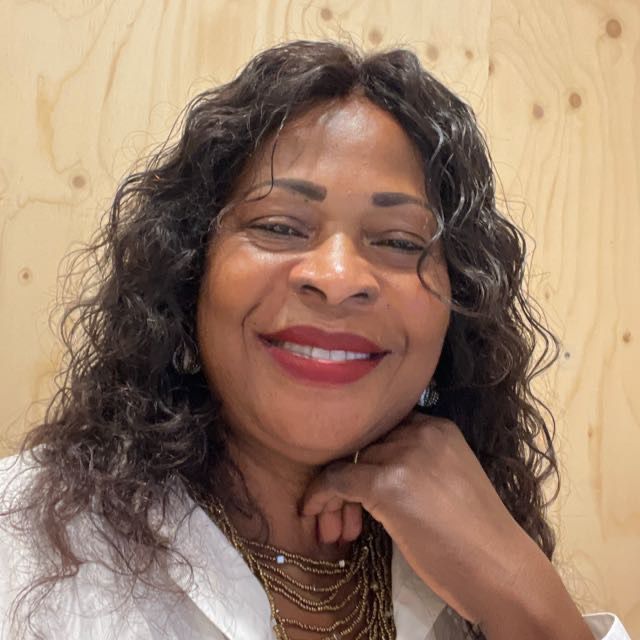
El Fasher is bleeding and the world is silent:
Dutch human rights activist Amna Naji stated that Sudan is experiencing one of the worst humanitarian crises in its modern history, a result of a war that has raged for over seven decades, shifting from one region to another, leaving behind thousands of victims and millions of displaced people, and threatening what little remains of the country’s infrastructure.
In an interview with the “Youth Issues” program on Radio Dabanga, Naji described the events in El Fasher at the hands of the Rapid Support Forces as a slow death under bombardment and starvation.
She explained that the city had endured months of a suffocating siege, depriving its residents of food, medicine, and water, and closing all humanitarian access points. Independent organisations were prevented from entering to document the situation, a situation activists described as a “pre-emptive death sentence for defenseless civilians.” She noted that the city’s residents faced death in all its forms: relentless bombardment, rampant disease, and starvation that claimed the lives of children and the elderly, amidst the complete inability of humanitarian and international organisations to intervene.
The path to salvation leads to destruction:
Amina Naji described what happened in El Fasher as a massacre the world had never witnessed. She explained that after the city fell, the escape route became another death trap. Those who tried to flee faced death either from direct bombardment or from thirst and hunger during long journeys through areas almost devoid of resources. Entire neighborhoods were burned, and the population was scattered, some displaced, some missing, and some dead without anyone to bury them. She described what happened in El Fasher as an “unprecedented massacre” committed before the eyes of the world.
She likened what happened in El Fasher to the Cambodian genocide of the last century, where people were ground to death, asserting that the scene in El Fasher today is no less horrific than that humanitarian catastrophe.
Survivors’ stories
Naji asserted that what happened in El Fasher is no longer merely accounts from survivors or reports published by local organisations, but a documented reality supported by satellite imagery, bearing witness to one of the most horrific human tragedies in modern Sudan.
She explained that the satellite images of El Fasher were precise, documenting systematic destruction and bloody violations committed in broad daylight.
She pointed out that this evidence, with its clear details regarding time and location, is irrefutable and confirms that what happened in El Fasher was not random, but rather a large-scale, premeditated crime.
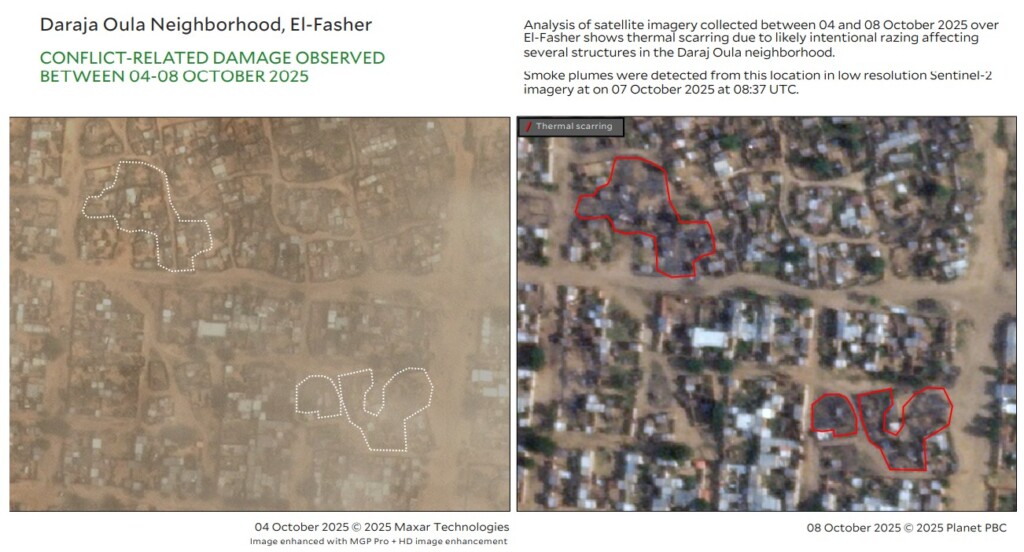
Destruction of vital infrastructure in the city:
Naji stated that all civilian infrastructure had been destroyed, and the sheer volume of photographic evidence and corroborating testimonies made the events undeniable. The violence perpetrated, she said, was beyond comprehension. Hundreds of civilians were deliberately killed and displaced, and witnesses described the mutilation and dismemberment of corpses in horrific scenes.
She characterised it as “bizarre and incomprehensible violence,” reflecting a complete breakdown of all human and social values. “What we witnessed in El Fasher is indescribable. The tragedy has transcended the boundaries of war, reaching an almost unbelievable level of brutality. The images coming from there show a city being annihilated, its inhabitants murdered without cause. The question that haunts me is: how did we, as Sudanese, reach this point of fighting and bloodshed?”
Deep psychological wounds in the hearts of young people:
In an interview with Dabanga, Amina Naji stated that the ongoing war in Sudan, particularly the events in El Fasher, is having a devastating impact on young men and women, both within the country and in the diaspora. The relentless violence not only destroys the physical infrastructure but also shakes the psychological and social foundations of an entire generation. She explained that the current situation makes it easy to kill young men and rape young women, and these practices leave deep psychological wounds that do not heal easily. This causes the victims to lose their inner balance, leading some to become withdrawn and isolated, dwelling on the atrocities they witnessed, while others become more prone to anger and violence due to a lack of self-confidence and trust in others.
Psychological trauma
Naji added that Sudan faces an enormous crisis in addressing the vast amount of psychological trauma suffered by young men and women who have witnessed or experienced violence. Addressing these challenges requires substantial financial resources, specialised professional expertise, and sustained efforts spanning many years. Even with concerted local and international efforts, the possibility of restoring normalcy to these individuals remains highly doubtful.
Naji emphasised that the pain is not limited to those within the country. Young Sudanese in the diaspora, who follow news of killings, torture, and mutilation of bodies, are also experiencing a different kind of trauma. She added that despite the availability of safety and basic necessities in their places of refuge, images of violence infiltrate their dreams and minds, causing sleep disturbances, chronic anxiety, and difficulty concentrating or performing daily tasks.
A call to end the violence:
Naji stressed that the continued violence against young men and women in Sudan threatens the future of the entire country, noting that both the army and the Rapid Support Forces will reap nothing from this destruction but psychologically shattered generations and a traumatised society. She emphasised that ending the war has become an urgent moral and humanitarian imperative, because everyone will pay the price for this violence sooner or later.








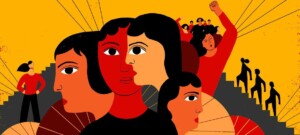
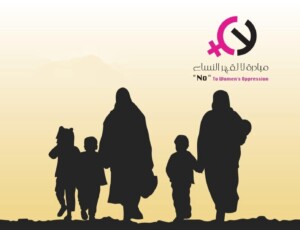
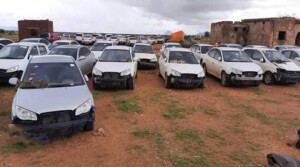

 and then
and then